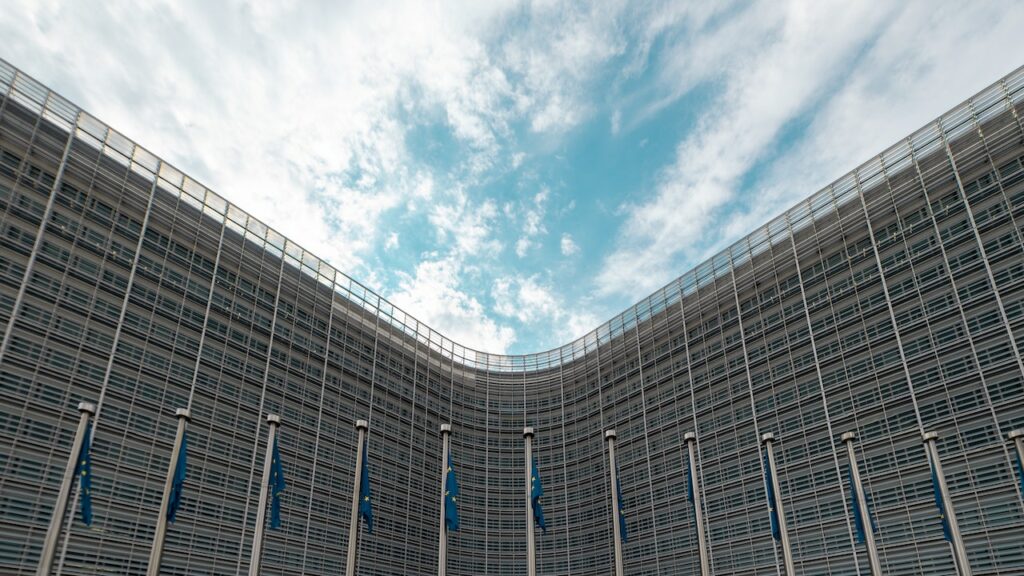
Coronavirus pandemic raises questions of the European Union’s role in tackling the outbreak. There are voices that European Union and Commission should take further steps in order to prevent the pandemic from spreading and impose general measures that could help to coordinate actions of the member states. It can be seen that most of the essential decisions are made on the local level by the national authorities. It is sometimes used as an example of general inability of the EU to govern efficiently in the times of crisis.
But would it be even possible for the EU to do more in such a situation?
Although there is a raising amount of areas covered by the EU competences, there are no significant ones that could be used in the situation of a pandemic that affects all of the member states. The current problems and lack of power in time of crisis have to be distinguished from general aims and measures towards increasing the level of public health, which are strongly limited due to the national specificities on these matters.
Article 5 of Treaty on European Union states that competences of the organisation are governed by the states and introduces the principle of conferral. It means that they are strictly limited to those granted by its members. When it comes to public health issues the Treaty on Functioning of the European Union states that they fall under the provision of article 4(2)(k), so they are subject of shared competences between EU and the states. That gives the EU limited power in order to provide solutions regarding common safety concerns in public health matter. Despite this, there is a specific regulation concerning prevention of epidemics included in article 168(5) TFEU which implies possibility of „adopting incentive measures designed to protect and improve human health and in particular to combat the major cross border health scourges, measures concerning monitoring, early warning of and combating serious cross-border threats to health”[1]. On the basis of that article the decision on serious cross-border threats to health was adopted in 2013. Decision “lays down rules on epidemiological surveillance, monitoring, early warning of, and combating serious cross-border threats to health, including preparedness and response planning related to those activities, in order to coordinate and complement national policies” [2] (article 1).
What can be done based on these provisions?
Basically the exercise of this type of competence will involve, on the one hand, adopting opinions, recommendations, resolutions, conclusions, and, on the other, financing the activities of the members. The provisions have no direct effect.
EU has competences focused on coordinating the action of the members and therefore they can be seen as rather political. Shortly after the AH1N1 pandemic it started the joint programs (article 5 of the decision) in order to place an order for massive amounts of medical countermeasures and therefore act like a big purchaser to negotiate best prices and stimulate suppliers to increase production. The fact is, that taking part in the action was only optional and some states (e.g. Poland) had not decided to get involved early enough to seize the opportunity.
Practically, the main actor in the EU concerning health issues is Commission that has launched numerous programs, such as COVID-19 Data Portal that helps scientists to coordinate their actions and share the findings. There were also consular cooperation undertaken in order to repatriate as many as 500,000 EU citizens from abroad that was complementary to actions taken by the states. [3]
As can be seen the main scope of the action taken by the EU is to coordinate and support member states. In terms of fighting the coronavirus it is a kind of forum for the governments to communicate directly and within already verified and tested structures. The critics stating that EU should do more to tackle the virus do not take into account the fact that the organisation is using all the competences it has.
What is more, many of the standards imposed by the EU law had to be temporarily cancelled, such as the fact of closing borders, reintroducing border controls and therefore imposing restriction on free movement. Member states has decided on that on their own using provisions of Schengen Borders Code providing them with the capability of doing so in the event that a serious threat to public policy or internal security has been established.
The past health crises such as dangers of HIV and SARS
have driven forward the competences of the EU on health. There is high
probability that this time, especially considering the scale of the outbreak,
it will result in major changes in health politics and more of the powers will
be transferred to the EU. If this happens, the next crisis will be tackled much
more efficiently. Another scenario assumes that member states will go further
towards „independence” and the result remains unknown, especially from
perspective of future pandemics that are very likely to occur in this
globalised world.
References:
[1] Consolidated versions of the Treaty on European Union and the Treaty on the Functioning of the European Union (TFEU) [2016] OJ C202/1.
[2] Decision on serious cross-border threats to health and repealing Decision No 2119/98/EC [2013] OJ 2 293 5112013/5.
[3] Timeline of EU action’ (European Commission, 17 april 2020) <https://ec.europa.eu/info/live-work-travel-eu/health/coronavirus-response/timeline-eu-action_en> accessed 9 May 2020/>.


